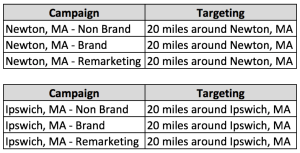
StockSnap / Pixabay
One of America’s biggest challenges over the next 20 years will be addressing the ever-growing skills gap in our workforce. Although millions of American workers are currently unemployed or underemployed, companies across varying industries are finding it difficult to fill open positions due to lack of qualified candidates.
The problem lies in the gap for “middle skills” jobs, defined by Harvard Business School as jobs that require more education than a high school diploma but less than a four-year college degree. While some of the blame can be placed on globalization and technological innovation (as certain types of jobs have moved overseas or have been automated), a large part of the problem stems from a lack of communication between businesses and educators.
For many years, employers have had little incentive to invest in workforce development, which has effectively weakened the pipeline of skilled workers. At the same time, educators often lack the right information from businesses to guide students on what knowledge and skills they would need to succeed in the job market.
Although politicians have tried to address the issue—President Obama, for example, had proposed free community college tuition during his term, albeit unsuccessfully—the biggest impact will ultimately come from small businesses taking the initiative to partner directly with local community colleges on workforce development programs.
Why partner with community colleges
Partnering with local community colleges is a great way to build and refine your recruiting pipeline for future employees. Not only do these colleges offer access to a diverse pool of talent, but the students usually have stronger roots in the local area—these are the types of workers that tend to stick around long term.
Unlike major four-year universities, community colleges have more flexible curricula, meaning that they are better equipped to adapt their programs to the changing needs of the job market. This gives you the opportunity as a small business to play a major role in the training of future recruits, so that they are better prepared for the positions that will need to be filled in the future. Here are some ways your business can work with community colleges:
Share your skills gaps and needs with educators. Conduct an audit to identify the skills gaps within your company and industry, then share this info with your local community colleges so that they can better tailor their programs accordingly. Does your company require proficiency in web programming or a special software? Do you have trouble finding candidates with a good grasp of a specific subject, like inventory management or e-commerce fulfillment? Such practical knowledge can easily be addressed within community college coursework—but only if educators know that there is a need for it.
Offer paid internships with class credit. Labor law issues aside, research shows that paid internships (over unpaid) can bring lots of benefits to a company. First off, paid internships increase the quality of the applicants, which in turn increases the overall value of the interns—they learn faster and can contribute more in their short time with the company. It’s also a good recruitment tool; paid interns are more likely to convert to full-time hires and stay with the company over the long term.
There is also an important social impact factor: diversity. Statistics show that African American and Hispanic students are more likely to hold debt or have financial needs that keep them from taking unpaid opportunities. By offering paid internships, such students don’t have to choose between a paycheck and a valuable work experience.
Speak to students about professionalism and soft skills. Well-rounded job candidates don’t just fulfill job functions, they should also be mature individuals that know how to conduct themselves professionally and work well with others. You can help community colleges train the next generation of workers by offering to speak to students about working in a professional environment. This includes such advice as interview tips and employer expectations, including attire, timeliness, personal conduct, and conflict resolution.
Project your future workforce needs and account for upcoming innovations. Building a pipeline of good talent requires not just knowing what employees you need now, but what skills you will need in the coming 3-5 years. Will artificial intelligence or blockchain change the way you do business? Are you up to date on the latest e-commerce marketing strategies? You’ll want to work with local community colleges to get these topics into the coursework now, so that your future recruits will be well prepared and well trained before you take them on as employees.
Creating a sustainable future, making a local impact
Working with community colleges is not only a smart way to build up your company’s recruiting pipeline, it also helps strengthen your local community and makes a big social impact. By training and hiring local students, your business can help them to find well-paying jobs and financial stability.
At Creative Business, we know firsthand how impactful these programs can be. We’ve partnered with LaGuardia Community College on their “First Break” program to work with local students studying accounting and business. Not only have we hosted six interns, we’ve ended up hiring three of them as full-time staff. We are extremely proud of all of them and their accomplishments, both in and out of the office!
Originally published here.
Business & Finance Articles on Business 2 Community
(19)
Report Post







